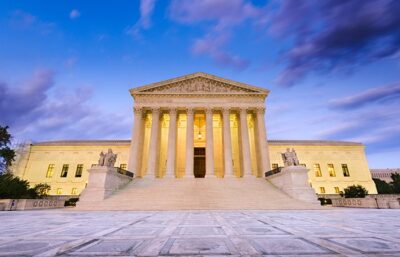What’s the story?
The United States Supreme Court in June issued decisions in two administrative law cases concerning judicial review of agency actions. While the court officially ushered in the major questions doctrine, it stayed silent on the future of Chevron deference.
In West Virginia v. Environmental Protection Agency, the court formally invoked the major questions doctrine for the first time to limit the scope of powers granted to the Environmental Protection Agency (EPA) through the Clean Air Act to regulate greenhouse gas emissions. The justices ruled 6-3 that, according to the major questions doctrine, the regulation of greenhouse gas emissions constitutes a significant policy question that should be determined by elected lawmakers in Congress rather than by agency staff. Post-decision commentary questioned how the decision could affect other delegations of authority and whether the major questions doctrine would replace Chevron deference as the court’s preferred tool for reviewing challenges to agency authority.
In Biden v. Texas, the court ruled 5-4 to uphold the U.S. Department of Homeland Security’s memoranda ending the Migrant Protection Protocols (MPP) program as a lawful final agency action consistent with federal immigration law and the Administrative Procedure Act (APA)—allowing the Biden administration to move forward with its plan to end the MPP. The decision in the case helped clarify the scope of agency discretion regarding immigration policy as well as the types of agency actions that the court considers to be final agency actions pursuant to the APA.
Want to go deeper?


